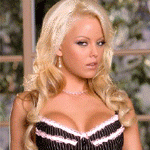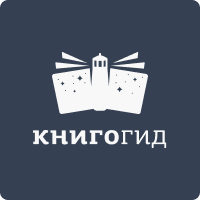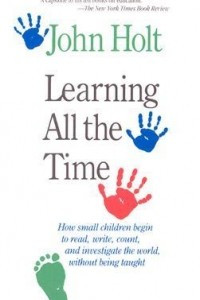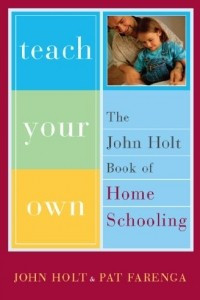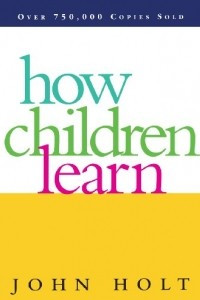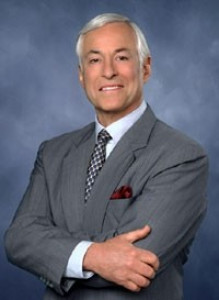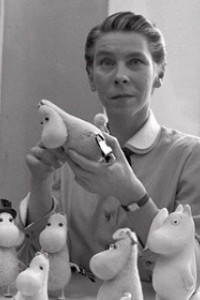-
Жанры
-
Художественная литература
- Приключения 75083
- Фантастика 100897
- Фэнтези 73474
- Детектив 59379
- Ужасы 48028
- Роман 70045
- Классическая литература 60314
- Историческая проза 8094
- Современная проза 141702
- Детская литература
- Культура и искусство
- Научная литература
- История
- Бизнес
- Прикладная литература
- Документальная литература
- Образование
- Дом и семья
- Физическая культура
- Здоровье
- Литература на иностранных языках
-
Художественная литература
- Книги
- Рецензии
- Сообщество
- Блоги
- Цитаты
- Тесты
- Подборки
- Премии
- Конкурсы
- Другое
John Holt
Краткая биография автора
John Holt was born in New York City, the oldest of three children. He was raised in the New England region of the United States, and was educated at the Institut Le Rosey in Switzerland and the Phillips Academy in Massachusetts.[1] After graduating from Yale University, Holt joined the United States Navy and served on board the USS Barbero, a submarine that fought in the Pacific Ocean. During the war, he concluded that nuclear weapons were the world's greatest danger, and only a world government...
John Holt was born in New York City, the oldest of three children. He was raised in the New England region of the United States, and was educated at the Institut Le Rosey in Switzerland and the Phillips Academy in Massachusetts.[1] After graduating from Yale University, Holt joined the United States Navy and served on board the USS Barbero, a submarine that fought in the Pacific Ocean. During the war, he concluded that nuclear weapons were the world's greatest danger, and only a world government could prevent nuclear war. After his three-year tour of duty in the Navy, he got a job with the New York branch of UWF, the United World Federalists (since renamed the World Federalist Movement). Starting in the mail room, he became the executive director of the New York branch within six years. However, he became frustrated with UWF's ineffectiveness and left it in 1952.At the urging of his sister, Holt became a fifth grade teacher. He also spent much time with the babies and young children of his sisters and friends. He was struck by the difference between the 10-year-olds (whom he liked) and the 1- and 2-year-olds. The children in the classroom, despite their rich backgrounds and high IQs, were, with few exceptions, frightened, timid, evasive, and self-protecting; the infants at home were bold adventurers. After several years of teaching in Colorado, he moved to Boston. It was here that he met Bill Hull, a fellow teacher, and they decided to start a classroom observation project; one would teach, while the other would watch. The notes and journal entries Holt accumulated during his first eleven years of teaching formed the core of two of his most popular books How Children Fail and How Children Learn, as well as his lesser-known and more radical work, Escape from Childhood: The Rights and Needs of Children. These three books detailed the foundational ideas of Holt's philosophy of education. He held that the primary reason children did not learn in schools was fear: fear of getting the wrong answers, fear of being ridiculed by the teacher and classmates, fear of not being good enough. He maintained that this was made worse by children being forced to study things that they were not necessarily interested in.In 1964, Holt published his first book, How Children Fail, asserting that the academic failure of schoolchildren was not despite the efforts of the schools but actually because of the schools. Not surprisingly, How Children Fail ignited a firestorm of controversy. Holt was catapulted into the American national consciousness to the extent that he made appearances on major TV talk shows, wrote book reviews for Life magazine, and was a guest on the To Tell the Truth TV game show. In his follow-up work, How Children Learn, published in 1967, Holt tried to elucidate the learning process of children and why he believed school short circuits that process.Holt became a sought-after speaker and supporter of school reform. He was a visiting teacher for the education departments at Harvard University and the University of California, Berkeley. Up to this time, no book of his suggested any alternative to institutional schooling; he had hoped to initiate a profound rethinking of education to make schools friendlier for children. But as the years passed, he became convinced that the way schools were was what society wanted, and that a serious reexamination was not going to happen in his lifetime.Holt then ended his teaching career in order to publicize his ideas about education full-time. He soon encountered books by other authors questioning the premises and efficacy of compulsory schooling, including Deschooling Society by Ivan Illich (1970) and No More Public School by Harold Bennet (1972). (Bennet went so far as to offer advice to parents on how to keep their children out of school illegally.) In 1976, he published Instead of Education: Ways to Help People Do Things Better, whose conclusion called for a "Children's Underground Railroad" to help children escape compulsory schooling. Readers of this book contacted Holt, saying that they were educating their children at home. After corresponding with a number of these families, Holt began a newsletter in 1977, dedicated to home education, Growing Without Schooling.Holt's philosophy was simple:"... the human animal is a learning animal; we like to learn; we are good at it; we don't need to be shown how or made to do it. What kills the processes are the people interfering with it or trying to regulate it or control it."It was no great leap from there to arrive at homeschooling. In 1980, Holt said:"I want to make it clear that I don’t see homeschooling as some kind of answer to badness of schools. I think that the home is the proper base for the exploration of the world which we call learning or education. Home would be the best base no matter how good the schools were."In his 40th year, Holt began to study the cello, an experience he wrote about in his 1979 book Never Too Late: My Musical Life Story.Holt continued to advocate for expansive reform of education until his death in 1985.
На нашем книжном сайте Вы можете скачать книги автора John Holt в самых разных форматах (epub, fb2, pdf, txt и многие другие). А так же читать книги онлайн и бесплатно на любом устройстве – iPad, iPhone, планшете под управлением Android, на любой специализированной читалке. Электронная библиотека КнигоГид предлагает литературу John Holt в жанрах .
Творчество John Holt
На нашем сайте представлены 4 книги автора John Holt. Самая популярная по мнению наших читателей "".
The essence of John Holt’s insight into learning and small children is captured in Learning All The Time. This delightful book by the influential author of How Children Fail and How Children Learn shows how children learn to read, write, and count in their everyday life at home and how adults can respect and encourage this wonderful process. For human beings, he reminds us, learning is as natural ...
Today more than one and a half million children are being taught at home by their own parents. In this expanded edition of the book that helped launch the whole movement, Pat Farenga has distilled John Holt's timeless understanding of the ways children come to understand the world and added up-to-the-moment practical advice. Rather than proposing that parents turn their homes into miniature s...
This enduring classic of educational thought offers teachers and parents deep, original insight into the nature of early learning. John Holt was the first to make clear that, for small children, learning is as natural as breathing.” In this delightful yet profound book, he looks at how we learn to talk, to read, to count, and to reason, and how we can nurture and encourage these natural abilities...
“We, in modern-day America, underestimate children’s abilities to make reasonable judgments far more than have any other people at any other place or time in history. In the name of protecting children we hurt them, sometimes viciously. As Holt shows brilliantly, children need the same rights to advance their own interests and protect themselves as we grant to adults.” —Peter Gray, author of Fre...
Похожие авторы

Если у Вас возникли вопросы по работе сайта - напишите нам!
нашли ошибку на странице!

Нейросеть ориентируется на оценки прочитанных вами книг
поиск

Найдите книгу, автора, подборку, издательство, жанр, настроение или друга на Книгогид
подборки

Создавайте подборки с книгами, которые вы прочитали, подписывайтесь на подборки интересных пользователей.
Регистрируясь, вы соглашаетесь с нашими Условиями и политикой конфиденциальности
Книгогид использует cookie-файлы для того, чтобы сделать вашу работу с сайтом ещё более комфортной. Если Вы продолжаете пользоваться нашим сайтом, вы соглашаетесь на применение файлов cookie.


